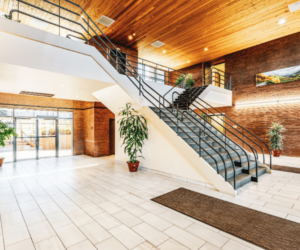Denver’s tech industry has experienced remarkable growth over the past decade, transforming the city into a burgeoning hub for technology firms and startups. This upward trajectory in the tech sector has not only diversified the city’s economic landscape but also fundamentally altered its commercial real estate market.
The influx of tech companies has spurred increased demand for office spaces, invigorating development projects, and attracting a new wave of investors keen on capitalizing on the emerging opportunities.
This document aims to explore how the expansion of Denver’s tech sector is reshaping the demand, development, and investment landscape within the city’s commercial real estate market.
Through a comprehensive analysis, we will examine the direct and indirect effects of tech industry growth on real estate trends, assessing both the opportunities and challenges it presents for Denver.
Overview of Denver’s Tech Industry
Denver’s tech industry has experienced a remarkable growth trajectory over the past decade, positioning the city as a burgeoning tech hub in the United States. This expansion is fueled by a combination of factors, including a highly educated workforce, a supportive startup ecosystem, and the city’s lifestyle appeal, which attracts tech talent and companies alike.
Growth Trajectory of the Tech Sector in Denver
The tech sector in Denver has grown exponentially, with significant increases in tech-related employment and the establishment of new tech firms.
The expansion has also been significantly influenced by the renewable energy and fintech sectors, with companies exploring sustainable solutions and digital finance technologies that push the boundaries of traditional markets. The emphasis on sustainability and digital transformation has opened up new opportunities for startups and established companies alike, attracting investments and partnerships globally.B. Major Tech Companies and Startups Driving Innovation
Furthermore, the education and healthcare sectors are harnessing technology to revolutionize their services, from e-learning platforms that make education accessible to remote areas to telehealth services that provide medical consultations through digital platforms. These advancements not only contribute to the growth but also enhance the quality of life, demonstrating the powerful impact of integrating technology across various industries.
Major Tech Companies and Startups Driving Innovation
Denver not only hosts an array of major tech firms and a dynamic startup environment but also boasts a thriving ecosystem supporting these entities.
This ecosystem includes a variety of tech incubators, accelerators, and co-working spaces designed to foster innovation and collaboration among tech entrepreneurs and developers. The city’s numerous tech meetups and conferences provide further opportunities for networking and idea exchange, reinforcing its status as a hub for technological progress.
Moreover, Denver’s tech scene is complemented by its academic institutions and research facilities, which work closely with the tech industry to push the boundaries of science and technology. This collaboration between academia and industry has led to groundbreaking research and development projects, attracting talent from across the globe.
Denver’s commitment to education and innovation not only enhances its appeal as a center for tech but also contributes to the city’s economic growth and diversification.
Comparison with Other Tech Hubs in the United States
When compared with other established tech hubs in the United States, such as Silicon Valley and Seattle, Denver offers a unique blend of opportunities and challenges. Although it may not yet match the scale of these tech giants, Denver’s tech industry benefits from a lower cost of living, a highly desirable lifestyle, and access to a talented workforce.
These attributes make Denver an attractive alternative for tech companies and professionals seeking a balance between urban and outdoor lifestyles, thereby contributing to its rise as a competitive tech hub.
Tech Industry’s Influence on Office Space Demand
The burgeoning growth of the tech industry has significantly influenced the demand for office space in Denver, leading to a number of observable impacts on the commercial real estate market.
Analysis of Increasing Demand for Office Space by Tech Companies
Tech companies, from burgeoning start-ups to established giants, have been flocking to Denver, attracted by the city’s talent pool, lifestyle, and relatively affordable costs compared to traditional tech hubs like Silicon Valley and Seattle.
This influx has spiked the demand for office space, as these companies seek innovative, well-located, and amenable work environments that reflect their culture and appeal to their employees. The demand is characterized not only by the quantity of space sought but also by the quality, with a premium on locations that bolster creativity, collaboration, and connectivity.
Emerging Coworking and Flexible Office Space Trends in Response to Tech Industry Needs
In response to the specific needs of the tech industry, Denver has observed a rise in coworking and flexible office spaces. These setups not only cater to the dynamic and often unpredictable growth patterns of tech companies but also align with their preference for modern, flexible, and collaborative work environments.
Coworking spaces, in particular, have become hubs of innovation and networking, offering tech companies of all sizes the flexibility to scale up or down as their business needs evolve. This trend towards coworking and flexible spaces signifies a significant shift in Denver’s commercial real estate landscape, driven largely by the growth and preferences of the tech industry.
Retail and Mixed-Use Developments
The expansion of the tech industry in Denver has not only transformed the city’s economic landscape but also significantly impacted its commercial real estate market, particularly in the realm of retail and mixed-use developments.
Integration of Tech-centric Retail and Experiential Spaces
The rise of tech-centric retail spaces is a direct reflection of the tech industry’s influence on consumer expectations and shopping behaviors.
These innovative retail environments often feature cutting-edge technology such as augmented reality experiences, interactive displays, and personalized shopping assistants powered by AI. This integration of technology creates immersive and experiential shopping spaces that attract a tech-savvy clientele, driving foot traffic and sales.
Demand for Retail Spaces in Tech-driven Neighborhoods
Neighborhoods with a strong presence of tech companies and workers experience heightened demand for retail spaces. Tech employees and the broader tech community seek convenience and lifestyle-oriented retail options that align with their preferences and values.
As a consequence, areas surrounding tech hubs witness significant interest from retailers looking to capitalize on the increased spending power and consumer demand inherent in these locales.
Mixed-use Developments Catering to Tech Workers’ Lifestyle Preferences
Mixed-use developments, which blend residential, commercial, and sometimes cultural, entertainment, or institutional uses, have become increasingly popular in catering to tech workers’ lifestyle preferences.
These developments provide an integrated living experience, offering access to workspaces, dining, shopping, and leisure activities all within walking proximity.
The amenities and services offered in these developments are designed to appeal to the convenience and quality-of-life demands of tech professionals, promoting a work-life balance that is highly valued in the tech industry.
Industrial and Warehouse Space
The burgeoning growth of the tech industry has had a profound impact on Denver’s commercial real estate market, particularly in the industrial and warehouse segment. This can be attributed to several factors:
Tech-driven Demand for Warehouse and Distribution Centers
This is skyrocketing, primarily due to the tech industry’s need for large spaces to house servers, R&D facilities, and logistics operations.
Companies specializing in advanced technologies, such as artificial intelligence, robotics, and the Internet of Things (IoT), require extensive infrastructure that oftentimes repurposes warehouse and industrial spaces to suit their specific needs.
The Impact of E-commerce Growth
The influence of this on industrial real estate is undeniable. With the rise of online shopping, there is an increased need for fulfillment centers, distribution hubs, and warehouses to ensure quick and efficient delivery of goods.
This surge in e-commerce has directly led to a spike in demand for industrial spaces, driving up rental prices and decreasing vacancy rates. Denver, with its strategic location and burgeoning tech scene, is experiencing this wave firsthand as more tech companies seek to establish or expand their logistics and distribution networks in the area.
Adaptive Reuse of Industrial Properties
It’s becoming increasingly common for tech-related purposes. Old warehouses and industrial buildings are being transformed into modern offices, data centers, and innovation labs.
This trend not only revitalizes unused or underutilized properties but also contributes to the economic and social fabric of the city by creating jobs and fostering innovation.
Denver, known for its dynamic and adaptable real estate market, has seen a number of such transformations, making it an attractive location for tech companies and startups looking for unique spaces that support creative and technological advances.
Investment Opportunities and Challenges
Opportunities for Investors in Tech-Adjacent Commercial Properties
The burgeoning tech industry in Denver not only fuels direct demand for office space but also creates vast opportunities for investors in tech-adjacent commercial properties.
These can include residential complexes for tech employees, retail outlets, entertainment venues, and coworking spaces. The influx of tech companies and their employees increases the demand for multifaceted commercial real estate solutions, presenting lucrative investment prospects.
Challenges Posed by Rapid Tech Industry Growth
While the growth of the tech industry brings numerous investment opportunities, it also introduces challenges, including increased competition and pricing pressure.
The high demand for commercial spaces can lead to a saturated market, where competition for prime locations becomes fierce. Additionally, the surge in demand can drive up property prices and rental rates, potentially limiting the pool of tenants able to afford these premiums.
Strategies for Maximizing Returns on Tech-Focused Commercial Real Estate Investments
To maximize returns in this dynamic market, investors should consider several strategies. Diversification across different types of commercial properties can help mitigate risk.
Focusing on locations with potential for long-term growth rather than short-term gains is advisable. Investors should also stay abreast of tech industry trends, as these can significantly impact demand for certain types of properties.
Lastly, offering flexible, tech-friendly spaces that can adapt to the changing needs of tech companies can make properties more attractive and competitive.
Urban Planning and Infrastructure
The burgeoning growth of the tech industry in Denver has led to a considerable impact on the city’s urban planning and infrastructure strategies. Collaboration between tech companies and city planners is becoming increasingly crucial for fostering urban development projects that are conducive to the tech industry’s needs.
This partnership helps to ensure that the urban landscape evolves in a way that supports innovation while also meeting community needs.
Investments in infrastructure are vital to sustaining the tech industry’s expansion. In Denver, this translates into significant enhancements in transportation networks and broadband connectivity.
Such improvements not only aid in easing the commute for tech professionals but also in facilitating seamless communication and operation for tech businesses.
Enhanced broadband connectivity, in particular, is essential for tech companies that rely heavily on high-speed internet for their daily operations.
Sustainable urban planning initiatives are also being prioritized in tech-centric neighborhoods, emphasizing green building practices, renewable energy utilization, and eco-friendly transportation options.
These initiatives reflect a broader commitment to ensuring that the growth of the tech sector contributes positively to Denver’s urban environment, making it more livable and sustainable for residents and appealing to incoming tech talents and companies.
Future Outlook and Trends
Predictions for the Future of Denver’s Tech Industry and Its Impact on Commercial Real Estate
The tech industry in Denver is expected to continue its upward trajectory, bolstered by an influx of talent and innovative startups. This growth is likely to further stimulate demand for commercial real estate, not just in traditional office spaces but also in mixed-use developments that cater to the tech workforce’s desire for work-life integration.
The expansion of the tech sector could lead to a diversification in the types of commercial spaces in demand, including creative offices, co-working spaces, and facilities that support research and development.
Emerging Trends to Watch
Two significant trends poised to shape the future landscape are the rise of remote work and the adoption of smart building technologies. The pandemic accelerated the shift toward remote and hybrid work models, a trend that the tech industry has readily embraced. This shift may lead to a transformation in commercial real estate, with a greater focus on flexible workspaces and collaborative environments rather than traditional office setups.
Furthermore, the integration of smart building technologies is set to revolutionize commercial spaces, making them more energy-efficient, secure, and adaptable to the needs of modern businesses.
Implications for Investors, Developers, and Policymakers
For investors and developers, the evolving dynamics of Denver’s tech industry and commercial real estate market present both opportunities and challenges. There is a growing need for investments in adaptable and innovative commercial spaces that cater to the changing needs of tech companies.
This environment also calls for a reevaluation of investment strategies, with a potential shift towards properties that support flexible and remote work patterns. For policymakers, the growth of the tech industry and its impact on the real estate market underline the importance of forward-looking urban planning and infrastructure development to support sustained growth and innovation.
Looking For Commercial Real Estate In Denver? We’re Here To Help!
Keynote Takeaways
- Tech Boom Impact: The influx of tech companies has spurred an increase in demand for commercial properties, especially those that offer flexible, innovative spaces conducive to tech activities.
- Investment Opportunities: Areas within and around Denver are seeing a rise in valuations, highlighting prime investment opportunities in both established and emerging neighborhoods.
- Future Trends: There’s a growing trend towards sustainable and smart buildings, driven by tech companies’ desire for environmentally friendly and technologically advanced offices.
Denver’s commercial real estate market has undergone a significant transformation, largely driven by the explosive growth of the tech industry. This has not only increased demand for innovative workspaces but also reshaped the city’s skyline with modern, tech-enabled buildings that cater to the dynamic needs of startups and established tech giants alike.
Our comprehensive analysis reveals key insights into how this growth has affected real estate trends, pricing, and availability, making Denver a hotspot for investors looking to tap into the tech sector’s expansion.
Whether you’re a startup seeking your first office space or an investor searching for lucrative opportunities, understanding the intricacies of Denver’s market is paramount. Our team has compiled a summary of key findings to guide you through the complexities of investing in a tech-driven real estate landscape. These insights cover everything from emerging hotspots within Denver to anticipated shifts in market demand.
We invite investors, developers, and companies to join us in exploring the vibrant opportunities within Denver’s evolving commercial real estate scene. Whether you aim to purchase, lease, or develop, our team is equipped with the expertise and resources necessary to facilitate your decision-making process and ensure a fruitful investment in this burgeoning market.
The intertwining of technology with real estate has set new standards for commercial spaces, pushing stakeholders to adapt to an increasingly digital world. Denver’s market is at the forefront of this shift, offering a glimpse into the future of urban development. Acknowledging and leveraging the opportunities presented by tech industry growth allows investors and businesses to not only thrive but also drive the city toward a more innovative and sustainable future.


